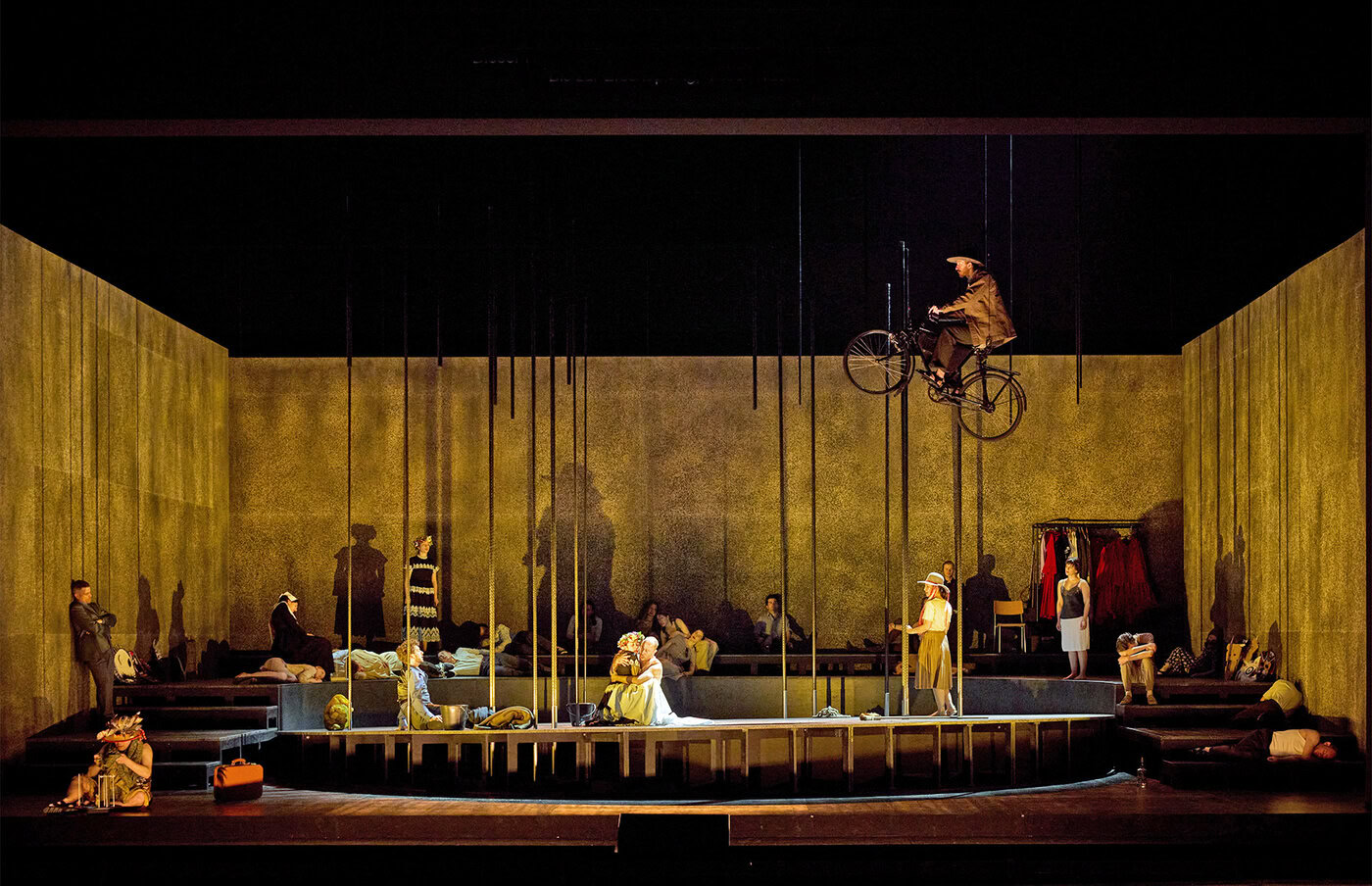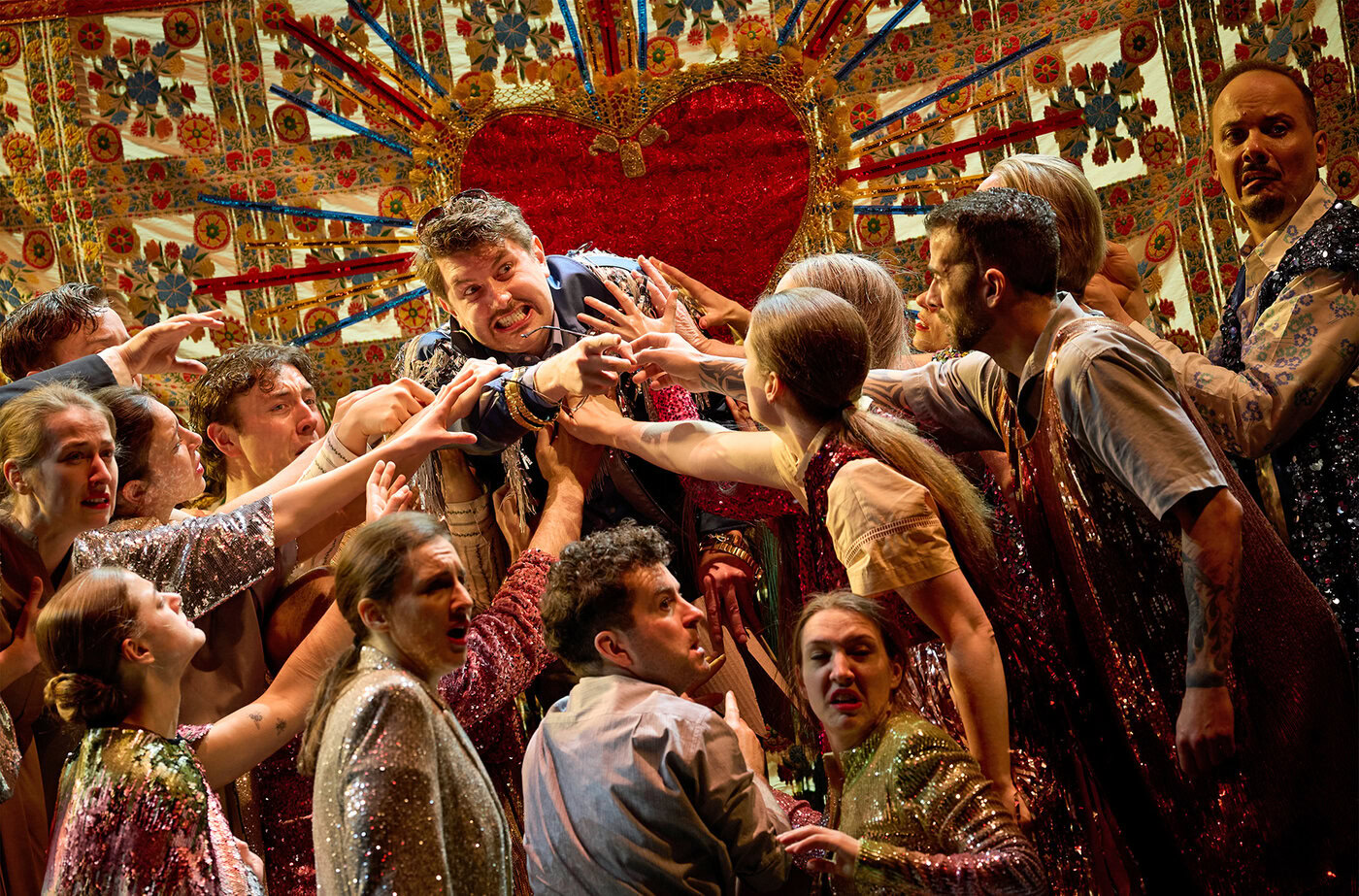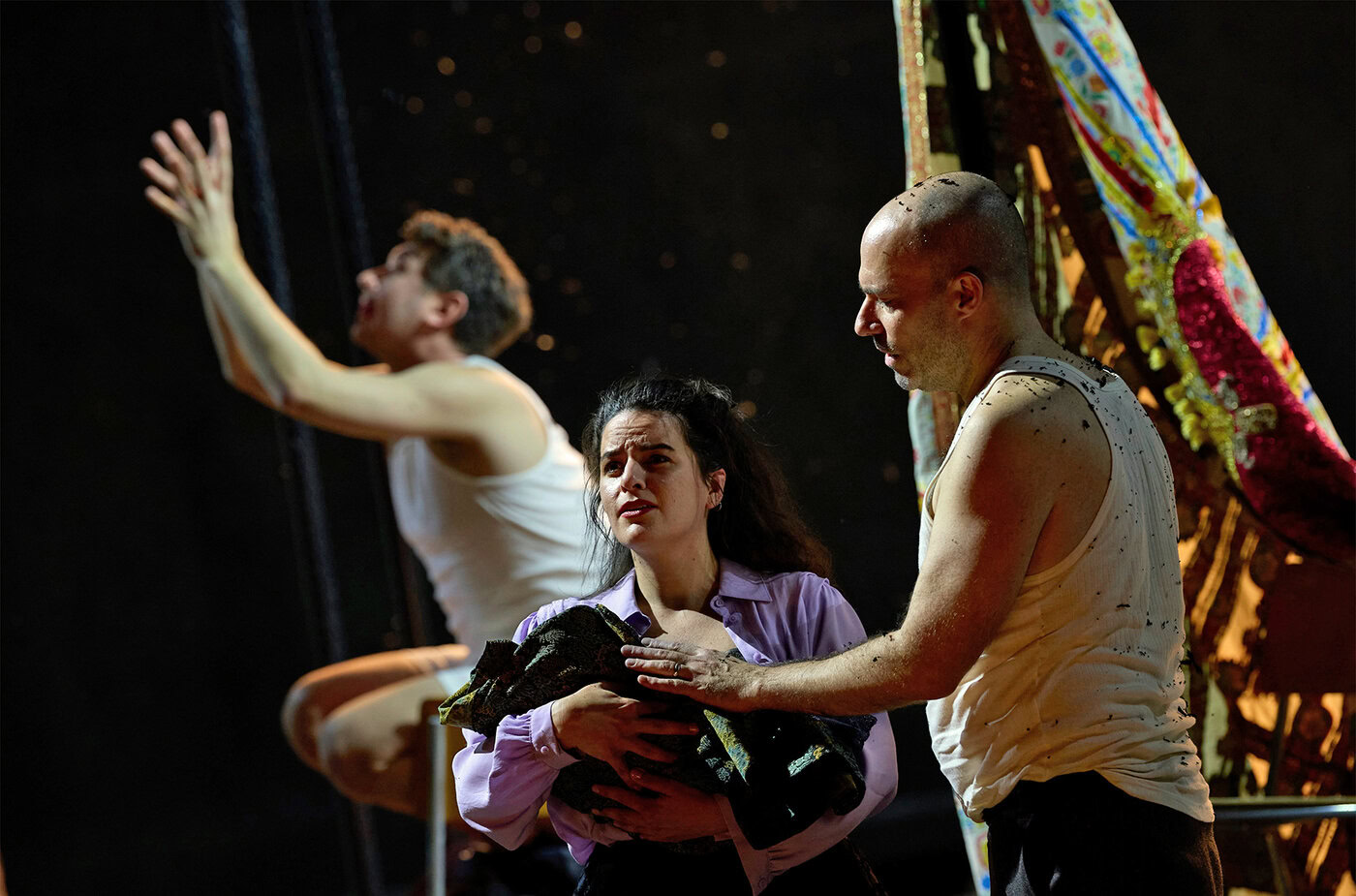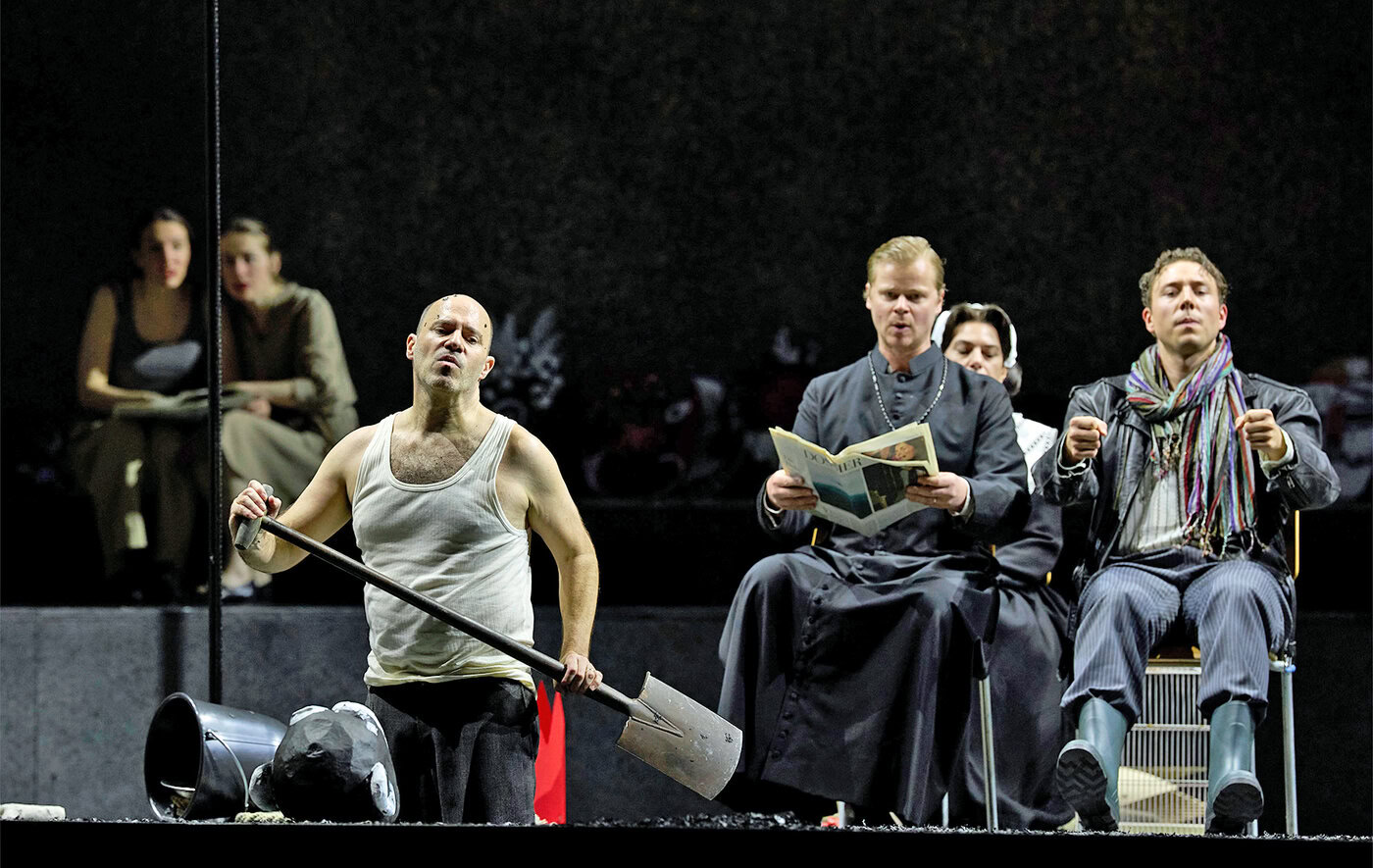Uprooting in unheard-of sounds
Beat Furrer's latest opera "Das grosse Feuer" had its world premiere at Zurich Opera House on March 23, 2025. The ambiguous music proved to be the antagonist of tension.

A tone like tinnitus: high, quiet, incessant. In the third bar, the accordion adds a second note in second notation, which, combined with the nervous repetitions of the violins, makes the sound even more disturbing. In addition, there are low, crashing figures in the bass instruments. It sounds like gurgling, like a languid sigh. "Rain, wood, Indians ... in this shithole," curses Andrew Moore as Paqui. The choir - the twelve-piece ensemble Cantando Admont, which was hired especially for the production - also reinforces the feeling of homelessness with its isolated, layered syllables. The microtonality that this formation precisely implements throughout the almost two-hour evening unfolds a strange, fascinating sound space.
Beat Furrer's new opera The great fire (libretto: Thomas Stangl), which was highly acclaimed at its premiere at Zurich Opera House, avoids any sense of familiarity from the outset. The characters are not musically supported and have no ground beneath their feet. Furrer's musical language is delicate, polyphonic and short of breath. A stammering as if after a shock, a struggle for words. The composer manages entirely without electronics, although his original sound mixtures sometimes sound like it. In his ninth opera and his first choral opera, the Swiss-born Austrian composer has turned to the 1979 novel Icejuaz to the Argentinian writer Sara Gallardo, whom he had come across through a composition student.

Story told suggestively
The focus is on the indigenous shaman's son Eisejuaz, who is torn between his belief in nature and his Christian upbringing. He works in a sawmill - and is thus partly responsible for the destruction of the forest, whose trees and animal spirits he can hear singing. The fact that he takes care of the racist petty criminal Paqui is due to his Christian influence. Eisejuaz mourns his deceased wife Lucia and is pressured by her sister Mauricia, his secret lover, to return to the Indio village. In the loosely connected scenes, he argues with the missionary, meets a seeress, allows himself to be ordered around by Paqui and is ultimately betrayed. His path leads steeply downhill - he goes from being a savior to being persecuted. Only an Indian woman (Muchacha), whom he heals, gives him a touch of comfort at the end, before she accidentally poisons him together with Paqui.

However, the meandering story, which is also conveyed in flashbacks and inner monologues, is not told in the opera, but only in the program booklet. The frequent alternation between Spanish and German, the experimental treatment of the language and the multiplication of some of the characters make for confusion. Without surtitles, which also outline the plot, you would be lost. Tatjana Gürbaca's production (co-directed by Vivien Hohnholz) in Henrik Ahr's standardized stage space also does little to make things more concrete. Standing and hanging poles may make you think of cleared jungle, of the destruction of life. A slanted disc that keeps moving as a playing surface, a cyclist hanging from the ceiling and not moving in slow motion - not enough scenic ideas to visualize the complex material and condense the evening.
Burning charisma from the singers
It is the actors who create theatrical moments through their acting presence and musical excellence. All the supporting roles and the major role of Mauricia (sung by Elina Viluma-Helling with a slender, limp soprano) are performed by members of Cantando Admont. Friederike Kühl and Patricia Auchterlonie make Lucia's lines float, Helena Sorokina and Cornelia Sonnleithner give the old Chahuanca dark colors, Hugo Paulsson Stove gives a stern, brightly timbred missionary. The French soprano Sarah Aristidou, who specializes in contemporary music, lends Muchacha enormous charisma with her sometimes completely vibratoless, pure vocal sound. Whether roaring or whimpering, greasy or rough: With his distinctive bass-baritone, Andrew Moore turns Paqui into a real puke, who at the end stylizes himself as a miracle healer in a bizarre scene in front of the glitter-covered people (costumes: Silke Willrett). Eisejuaz's tale of woe is finally broken. Leigh Melrose makes us feel the inner turmoil of this protagonist. Eisejuaz is a driven man, who makes pitfalls and becomes increasingly entangled in the thicket on his tortuous path. But Melrose also gives space to the enlightened Eisejuaz who hears the voices of spirits.
Under the direction of the composer, the Philharmonia Zurich vividly realizes the demanding score. It whispers and whimpers in the orchestra pit. The smallest particles are modeled. Even the few, massive outbursts, the cold layers of brass have a clear shape. Only the woodwinds sometimes seem too coarse in the filigree web of voices. And the balance is not always perfect. Beat Furrer's The great fire contains unheard-of sounds. However, the permanent ambiguity and polyphony also overwhelm this new music theater, whose tension is repeatedly lost in the many pauses, breaks and microstructures. At the end, the high frequencies in the accordion return. And the opera ends as quietly as it began.
Further performances: March 25/28/30, April 4/6/11, 2025, operahouse.ch









